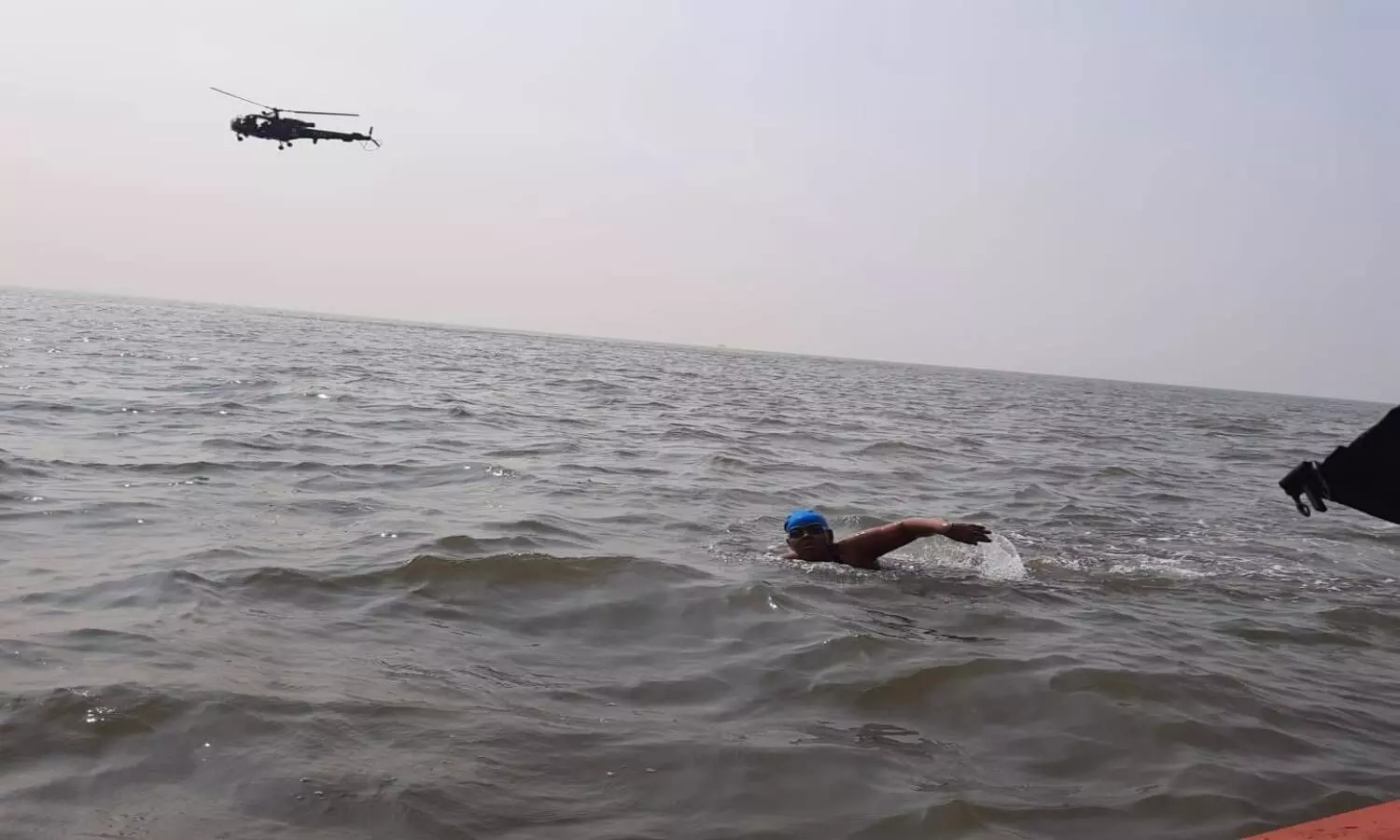12-year-old swims 36 km to create awareness about Autism Spectrum Disorder
As someone who has been diagnosed with the condition, she had taken it upon herself to spread awareness about ASD.
By Newsmeter Network
Mumbai: To create awareness about the Autism Spectrum Disorder (ASD), 12-year-old Jiya Rai, daughter of a Naval sailor, Madan Rai, created history by swimming from the Bandra Worli Sea Link to the Gateway of India in Mumbai on February 18. She set a record by swimming 36 km in 8 hours 40 minutes. She started swimming at 3.50 am and reached shore by 12.30 pm.
As someone who has been diagnosed with the condition, she had taken it upon herself to spread awareness about ASD. Jiya had earlier swam from the Elephanta Island to the Gateway of India, a distance of 14 km in 3 hours 27 minutes and 30 seconds, on 15 February 2020. She holds the world record for the youngest girl with ASD to swim 14 km in open waters.
The event was organised by the Swimming Association of Maharashtra, a recognised body of the Swimming Federation of India. The FIT India Movement of the Ministry of Youth and Sports Affair also participated in the event.
After the event, Jiya was felicitated with a trophy by N Zarir Baliwala, president of Greater Mumbai Amateur Aquatic Association (GMAAA).
JIYA RAI, A 12 YR OLD NAVAL CHILD, SWIMS FROM BANDRA-WORLI SEALINK TO GATEWAY OF INDIA TO CREATE AWARENESS ABOUT AUTISM SPECTRUM DISORDER. pic.twitter.com/3op3LiMLmc
— Madhurendra kumar🇮🇳 (@Madhurendra13) February 18, 2021
About Autism Spectrum Disorder
Autism Spectrum Disorder(ASD) is a complex developmental condition that involves persistent challenges in social interaction, speech and nonverbal communication, and restricted/repetitive behaviours. The effects of ASD and the severity of symptoms are different in each person.
As per the paper 'Prevalence of Autism Spectrum Disorder in Indian Children' by Anil Chauhan, it has been estimated that more than two million people might be affected with ASD in India. There are only a few studies focusing on its prevalence in community settings. Furthermore, a lack of uniform application of fully validated and translated autism diagnostic tools makes it difficult to estimate the exact prevalence of ASD. Most of the reported studies on ASD are based upon hospital-based data and thus lack information on the prevalence estimates of this disorder in India.
ASD not only affects the child and the family but also has direct and indirect cost implications on the nation as extra resources have to be utilised in providing health care, support for education, and rehabilitative services for children affect by ASD.